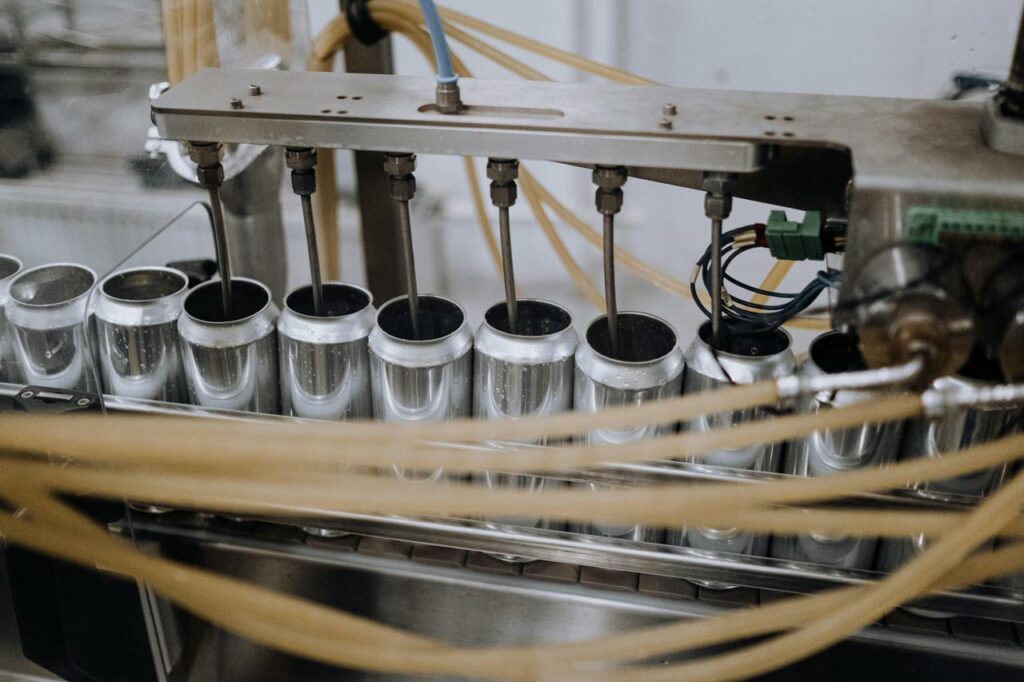Feast or Famine: How Contract Manufacturers Help You Meet Seasonal Demands
The holiday season often brings a shift from regular operations to a frenzy of activity for businesses. Whether it’s Thanksgiving, Black Friday, Cyber Monday, or the run-up to Christmas, product demand can soar, creating challenges in production, logistics, and customer satisfaction.. The issue? Many companies simply aren’t set up to handle these intense spikes in demand. This is where contract manufacturers can help businesses not only survive the seasonal rush but thrive.

The Challenges of Managing Seasonal Demand Fluctuations
For businesses in consumer goods, retail, and food production, managing fluctuations in demand is one of the biggest challenges of the year. While steady sales are desirable, they are rarely the reality during holiday seasons like Thanksgiving or major retail events like Black Friday and Cyber Monday. For many businesses, the influx of orders can be so substantial that their existing production capacity becomes overwhelmed. This can lead to backlogs, missed shipments, and a drop in customer satisfaction.
Handling this "feast or famine" situation internally often involves the costly and inefficient process of adding temporary labor, leasing new equipment, and potentially making long-term investments in manufacturing facilities that are only needed for a short time each year. Contract manufacturers provide a more streamlined solution, allowing businesses to tap into specialized expertise and existing infrastructure without the burden of long-term commitments.

The Strategic Advantage of Contract Manufacturing
Contract manufacturers (CMs) — third-party manufacturers who handle production — allow businesses to meet increased demand without the complexities of scaling production in-house. By leveraging the capacity and expertise of third-party manufacturers, companies can ensure that products are available when customers need them most. Here's how contract manufacturing addresses the seasonal demand challenge:
Risk and Cost Reduction: Seasonal demand’s unpredictability increases the risk of overstocking or understocking. Partnering with contract manufacturers mitigates these risks by quickly adjusting production. Additionally, businesses avoid costly investments in machinery, labor, and facilities, making production more cost-effective.
Scalability: Perhaps the most important advantage contract manufacturers offer is scalability. As demand spikes, they can ramp up production quickly to meet the increased volume. Whether it’s running additional shifts, expanding manufacturing lines, or using specialized equipment, contract manufacturers are equipped to adjust their production schedules and output to align with peak demand.
Expertise in High-Volume Production: Seasonality can introduce quality control risks if a business tries to scale up production too quickly. Contract manufacturers, on the other hand, have specialized knowledge in managing large production runs without compromising on product quality. Their experience with managing seasonal demand ensures that even during the busiest times, the quality of the product remains consistent.
Flexibility: Working with a contract manufacturer provides flexibility in terms of production scheduling. For example, if a business has forecasted a significant uptick in sales for Cyber Monday, the CM can adjust timelines to ensure timely delivery. This flexibility is invaluable when balancing tight timelines with fluctuating orders.

Preparing for Seasonal Spikes: Key Strategies for Success
While contract manufacturers can provide essential support during peak seasons, preparation remains crucial for a smooth partnership and successful execution. Here are a few strategies to ensure your business is ready for the holiday rush:
Test Runs and Quality Control: For businesses releasing new products or modifying existing ones for the season, test runs are essential. Work with your contract manufacturer to test production and quality control procedures before ramping up production. This helps identify potential issues early and ensures the final product meets quality standards.
Early Engagement: Start discussions with your contract manufacturer well in advance of the season. Waiting until the last minute can lead to delays, especially if the CM is already dealing with other clients’ seasonal needs. Establish clear timelines for when production should begin and when products need to be shipped out.
Accurate Demand Forecasting: Providing the most accurate sales forecasts possible is critical. Businesses should leverage historical sales data, customer insights, and industry trends to predict demand. Contract manufacturers rely on these forecasts to align their production schedules and material procurement. The more accurate the forecast, the better prepared the CM will be to deliver on time.
Buffer Stock: For businesses selling high-demand products, it’s wise to create a buffer stock in advance. Contract manufacturers can help businesses stockpile finished products, which can then be distributed as needed, reducing the risk of running out of inventory during peak shopping periods.
Continuous Communication: Maintaining transparent communication with your contract manufacturer is key. This includes sharing any last-minute changes in demand, production delays, or other challenges that might affect production. Proactive communication ensures there are no surprises when the orders start rolling in.

Impact on Black Friday and Cyber Monday Sales
Black Friday and Cyber Monday represent some of the busiest days for retailers, both online and in-store. These mega sales events can result in massive consumer demand for everything from electronics to apparel to home goods. Without the proper infrastructure in place, businesses risk missing out on sales opportunities and disappointing customers.
Contract manufacturers are a crucial part of this equation. When demand spikes on these major sales days, having an established manufacturing partner ensures that products are ready to ship when customers expect them. For e-commerce businesses in particular, quick turnaround times are essential to meet the fast-paced nature of these events. Consumers expect their orders to be fulfilled rapidly, and delays can lead to lost sales and negative reviews.
Moreover, with the rise of "pre-sale" events and early bird discounts, contract manufacturers can help businesses stay ahead of the curve. By aligning production with promotional timelines, businesses can be sure that their inventory levels are optimized for maximum sales during these high-stakes periods..

Seasonal Demand
In the "feast or famine" nature of seasonal demand, especially during peak retail periods like Thanksgiving, Black Friday, and Cyber Monday, contract manufacturers offer businesses the flexibility, scalability, and expertise they need to meet fluctuating production demands. By planning early, leveraging accurate forecasts, and maintaining communication, businesses can avoid the chaos of last-minute production ramp-ups and ensure they are prepared for the holiday rush. A well-managed partnership with a contract manufacturer is key to thriving during the busiest, most profitable times of the year.































